Ethiopia’s most influential fashion designers
These innovators are putting a contemporary spin on traditional designs and working from zero-waste studios
Ethiopia’s fashion culture is defined by its rich history of textile production. Thanks to centuries of cotton cultivation, the country is renowned for its beautifully handcrafted fabrics, from diaphanous shemma cloth to finely wrought Amhara embroideries. As one of Africa’s fastest-growing economies, Ethiopia is also becoming a new hub for global fashion manufacturing. But it’s the homegrown contemporary labels who are putting the country on the fashion map with their sustainable, locally inspired designs. Supermodel Liya Kebede is behind Lem Lem, which harnesses artisanal weaving to offer premium resortwear.
Meanwhile, two major events in Addis Ababa, Hub of Africa Fashion and African Mosaïque Fashion Festival, play a significant role in nurturing new labels such as Mastewal Alemu, Meaza and Ogetti Safuu. Here, we highlight five of the main names pushing this fledgling scene forward.

LemLem Resort 23 collection
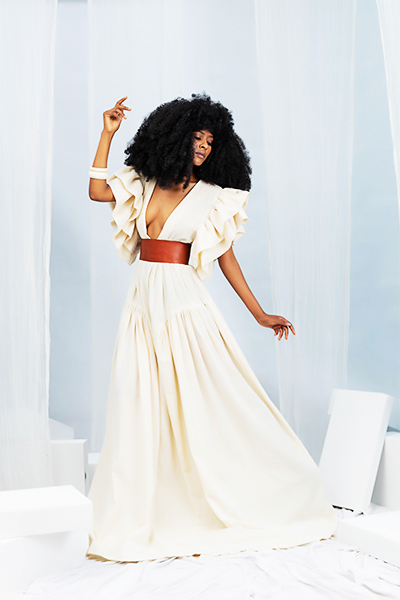
Mastewal Alemu collection / Image: Mekbeb Tadese

Genet Collection / Image: Aman Asra

Genet Kebede celebrated 30 years in the industry in 2022. Born in Addis Ababa, she originally studied fashion in Italy and Argentina before returning home to establish her label, Paradise Fashion, in 1992. The label is now known simply as the Genet Collection. Over the years she has been hailed as a pioneer for her catwalk and beach collections, shown in Paris and Milan, and garnered many accolades, among them the 2018 VV Grow Fellowship for women-led small businesses. What drives Kebede is her continual evolution of habesha kemis, the traditional floor-length dress style made from white shemma (lightweight cotton) and accentuated with tilet (narrow strips of patterned cloth).
genetcollection.com
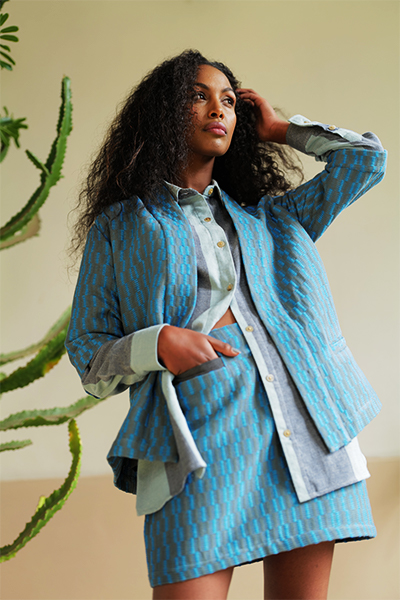
Yaltopya by Mahlet Afework / Image: Yonas Tadesse
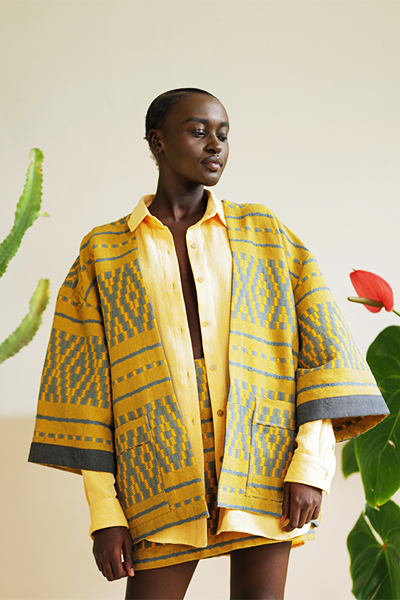
Yaltopya by Mahlet Afework / Image: Yonas Tadesse
Mahlet Afework grew up in awe of the skills of her mother, a seamstress and embroiderer who made textiles for special occasions. As a teenage rapper she immersed herself in Addis Ababa’s hip hop scene and began making streetwear for music videos. These two worlds collided when she established Mafi Mafi in 2011, which has since blossomed into an ethical womenswear brand. She empowers artisans to produce handwoven cloths, which then inform her modern designs based on classic styles, such as the netela (shawl). Plus, her studio is zero-waste and zero-plastic. This approach meant that Mafi Mafi made the final for the 2021 Tommy Hilfiger Fashion Frontier Challenge, an accelerator for innovative start-ups.
mafimafiet.com
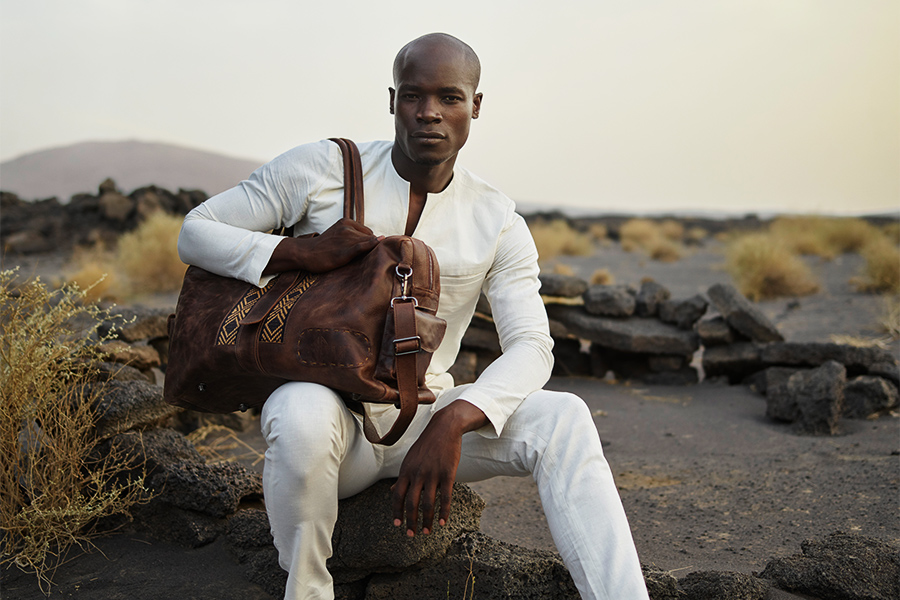
Afar by ZAAF / Image: Joey L

Abai Schulze was born in Ethiopia but adopted as an orphan and raised in the US where she studied economic development and fine arts. She returned home to intern at a shoe factory, which sparked the idea to utilise local leathers and crafts to make social impact. She went on to launch ZAAF in 2017, offering luxurious bags and accessories inspired by the region’s heritage and landscapes. For example, the elegantly fortified Gulo portfolio case honours Queen Amanirenas who fought off the Roman Empire. Schulze has since been profiled in Forbes and Vogue, won the UNESCO Tremplin Prize for Social Entrepreneurship and exhibited her work at New York Fashion Week.
zaafcollection.com
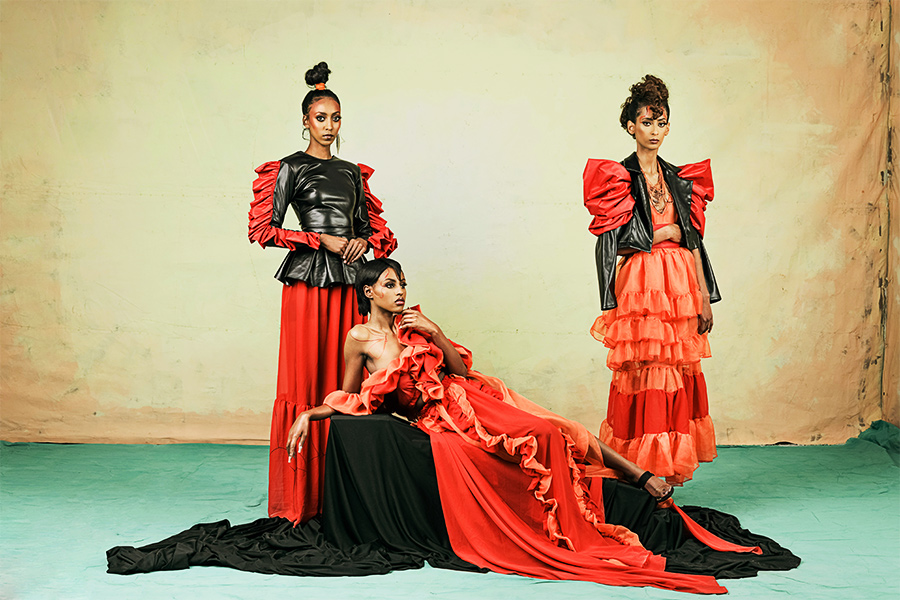
Kunjina's collection / Image: Mekbib Tadesse

Kunjina Tesfaye hopes her namesake brand acts as a channel through which women can feel free. She initially studied engineering before pivoting to fashion, launching Kunjina in 2017. Soon after she took part in the African Mosaïque Fashion Incubator programme and now brings her eye for structure and form to her strength-giving designs. Draped and manipulated fabrics form into cropped tops, combat trousers and billowing capes featuring hand-finished fringing, embroidery and plaits. The latest conceptual collection, UDET, explores personal evolution through the caterpillar’s transformation into a butterfly, culminating in grand, ruffled dresses realised on a 3D digital catwalk.
kunjina.shop

Yefikir Design runway show / Image: Daniel Tamerat
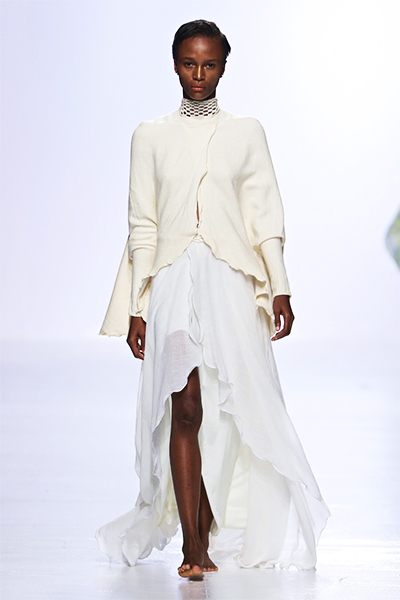
Yefikir Design runway show / Image: Daniel Tamerat
Whether you need casual comfort or bridal wear, Fikirte Addis has got you covered. Originally a psychologist, she launched Yefikir Design in 2009 as a new avenue to create positive change. She looks to her family’s heirloom tailored garments and traditional beading and embroidery to infuse each effortless design with her Ethiopian identity. Influenced by the diversity of Ethiopia’s handwoven textiles, a typical look might be a floaty wrap dress in a fine, gauzy shemma finished with colourful tilet. Addis is also an advocate for child safety and women’s rights in the fashion value chain.
instagram.com/yefikirdesign